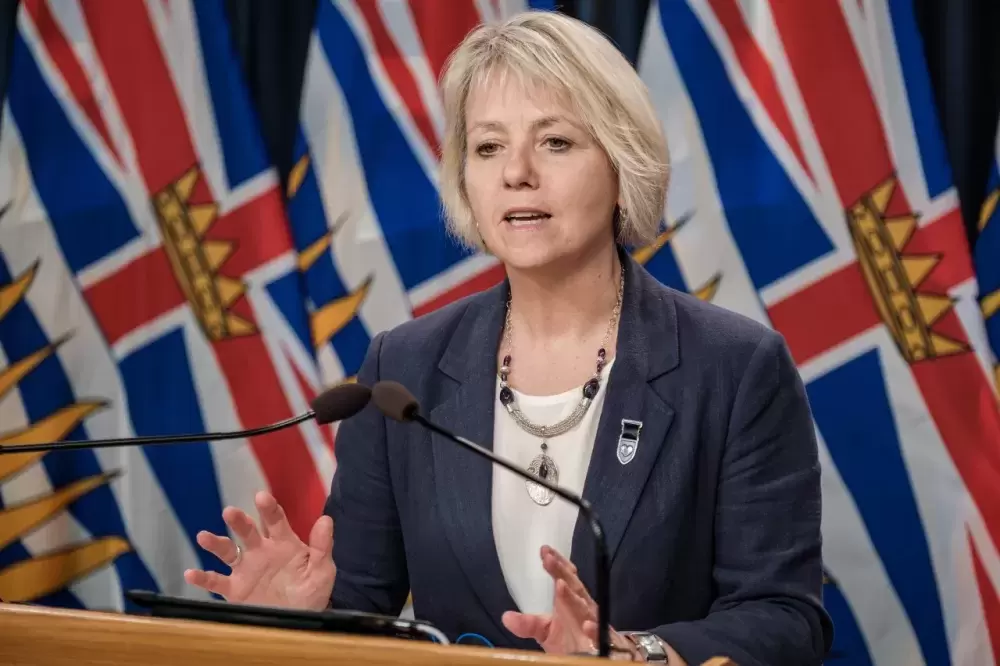A sombre message was delivered by officials on Aug. 25, pointing to the toll COVID-19 measures have taken on British Columbia’s other public health emergency.
July brought 175 more deaths due to illicit drug use – tying June as the highest monthly total of suspected overdose fatalities since the opioid crisis was declared in 2016. This marks the third straight month with over 170 suspected overdose deaths – part of an increase that began when COVID-19 was declared a global pandemic in March. Last month’s total represents a 136 per cent increase over the fatalities reported in July 2019. Paramedics responded to over 2,700 overdoses – the highest monthly total to date in B.C. Patients survived in 95 per cent of these incents, according to the Coroners Service.
"The number of people dying in B.C. due to an unsafe drug supply continues to surpass deaths due to homicides, motor vehicle incidents, suicides and COVID-19 combined," said Lisa Lapointe, B.C.’s chief coroner, during a press conference. "This health emergency continues to take a tragic toll on people from all walks of life and in all communities of the province. Access to key harm reduction services in the midst of a dual health emergency has been a challenge, and the extreme concentration of the illicit fentanyl being trafficked is resulting in deaths within moments of use.”
The closure of the US border and disruption of the normal chains of illicit drugs has been blamed for the increasingly toxic supply. But a host of other effects of the COVID-19 pandemic have been identified by public health officials, including mental health issues, isolation resulting from stay-at-home orders and challenges in accessing safe consumption sites that have been hindered by following social distancing measures.
“The dual health emergency of the overdose crisis with COVID-19 have created challenges across the province, including reduced access to key harm reduction services,” said Lapointe. “They are not as widely available as they could be. During the COVID-19 crisis with social distancing, of course, they were not open as many hours as they had been because there were not as many staff available as there had been in the past.”
While speaking about the pain the opioid crisis has brought families the voice of Dr. Bonnie Henry broke with emotion.
“It’s also dismaying to know that all of the work we have done in responding to COVID-19 has been a contributing factor to the numbers of deaths that we’re seeing from the toxic drug supply here in British Columbia and across Canada,” said the provincial health officer.
First Nations have been impacted by the overdose crisis at a rate more than five times that of the rest of B.C.’s population. Figures released by the First Nations Health Authority show 89 suspected overdose fatalities from January to May, showing a 93 per cent increase since before the pandemic.
“It really is about pain and intergenerational trauma,” noted Henry. “One of the things that we know are keeping people, Indigenous people, First Nations people from seeking help, is the racism that they have experienced in our health care system.”
Absent from the press conference was Judy Darcy, B.C.’s minister of Mental Health and Addictions, but in a statement provided to media she outlined efforts undertaken by the province this year to fight the opioid crisis.
“Since March, we have introduced new guidance to give people access to a safe supply of prescription medications,” she said, adding that the number of youth treatment beds has doubled and government has invested $10.5 million to increase overdose prevention sites.
Darcy also mentioned more outreach teams, recovery services and registered nurses to provide a safer drug supply, such as hydromorphone, which has not been linked to any fatal overdoses.
But the NDP government has also rejected calls from the provincial health officer to decriminalize possession of illicit drugs, indicating a rift between policy makers and health officials over the most effective means of curbing fatalities.
“If hydromorphone is our answer, then we’re failing miserably,” said Guy Felicella of the BC Centre on Substance Abuse.
During the press conference Felicella shared that he is a recovering addict who suffered six overdoses.
“I’m someone who’s lucky to have survived this crisis,” he said. “There are so many people I know that are waiting for the same chance that I’ve had, but we’re not giving people that chance, and we’re losing hope.”
What is needed is a safer supply for users, stressed Felicella.
“The absence of a policy to support access to a legally regulated safer supply is killing people. Every hour and every day our failed policies are forcing people to play Russian Roulette, and the odds are going against them,” he continued. “A safer supply would mean pharmaceutical alternatives to the toxic drug supply that would include heroin, injected hydromorphone and possibly even powered fentanyl – and we would consider how people use their drugs, whether it’s by injection or inhalation.”







